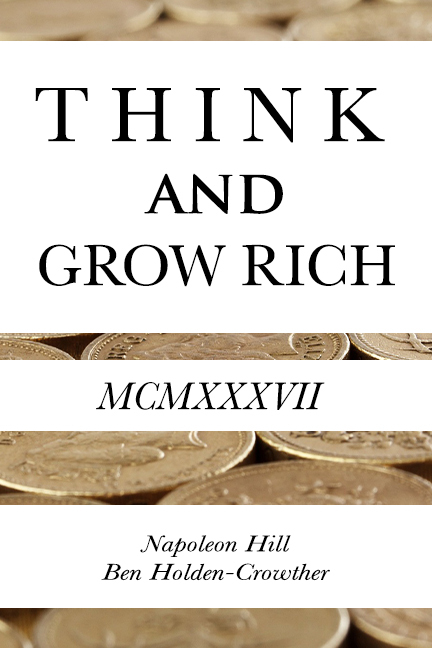
“Whatever the mind can conceive and believe, it can achieve.”
This quote encapsulates the book’s central idea that your thoughts and beliefs shape your reality. Hill argues that the power of the mind is the starting point for any achievement. By focusing on clear desires and developing unwavering faith, you can manifest your goals into reality. He emphasizes that success is not just about hard work, but about cultivating a mindset that aligns with your ambitions.
This book is the foundational text of personal development and wealth creation. Based on Hill’s 20-year study of over 500 successful individuals (including Andrew Carnegie, Henry Ford, and Thomas Edison), the book distills 13 principles for achieving financial and personal success. Unlike a get-rich-quick manual, it emphasizes mindset, persistence, and the power of belief as the true drivers of prosperity.
Desire – A burning, specific goal is the starting point of all achievement.
Faith – Unwavering belief in your goal primes your subconscious for success.
Autosuggestion – Repeated affirmations rewire your mindset (e.g., “I am wealthy”).
Specialized Knowledge – Self-education (not just formal schooling) unlocks opportunity.
Imagination – Ideas are the ultimate currency; creativity fuels innovation.
Organized Planning – Actionable steps turn vision into reality.
Decision – Procrastination is the enemy; successful people act decisively.
Persistence – Overcoming failure is non-negotiable (Hill’s “3 Feet from Gold” parable).
Mastermind Groups – Surrounding yourself with like-minded achievers multiplies success.
The Subconscious Mind – Harnessing its power through visualization and focus.
The Brain – A “receiving station” for ideas (Hill’s early law of attraction concept).
The Sixth Sense – Intuition sharpened by mastering the other principles.
Hill’s philosophy centers on “thoughts become things”—wealth begins internally. He illustrates this with stories like Edwin Barnes, who became Thomas Edison’s partner by refusing to quit, and the “ghost” of fear (criticism, doubt, and procrastination) that sabotages most people. While criticized for its esoteric leanings, the book’s core lessons on goal-setting, resilience, and self-discipline remain timeless.